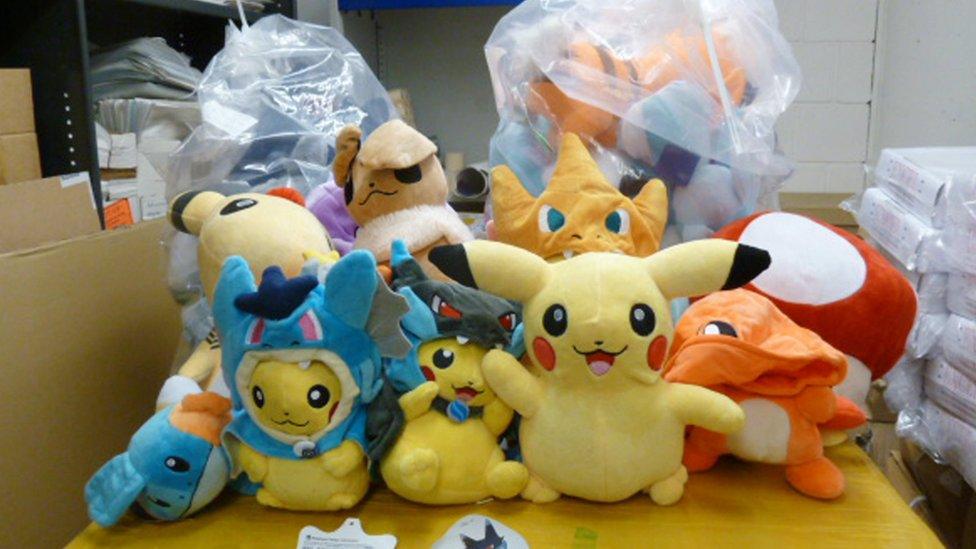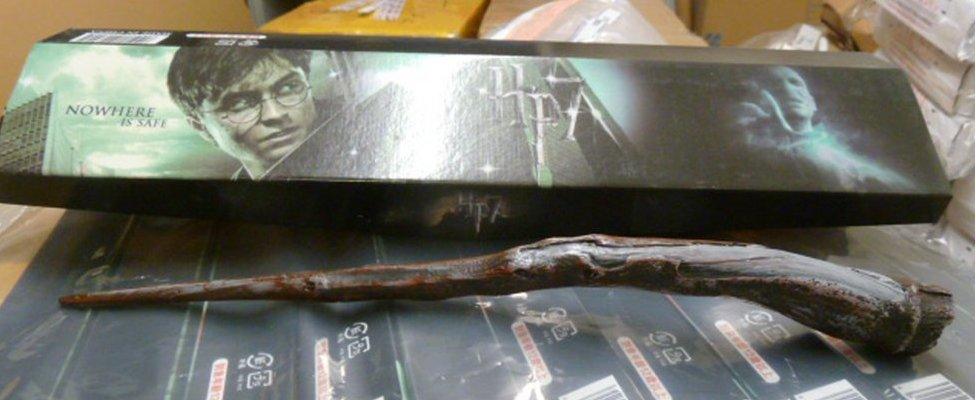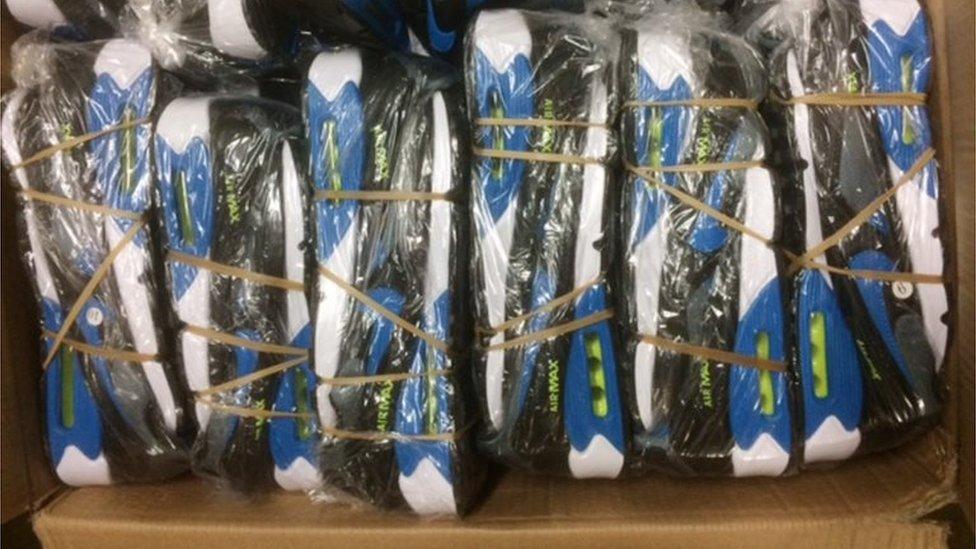Shoppers urged to check for fake goods
- Published

Cuddly toys are among the fake goods to have been seized by the Border Force
Christmas shoppers are being warned to check their presents after a raft of fake goods were seized on their way into the UK.
More than 83,000 items were confiscated by the Border Force at airports in one operation over six days in December.
The haul of counterfeits included Harry Potter wands, "Louis Vuitton" handbags and "Nike Air Max" trainers.
In recent weeks, £1m worth of goods had been stopped at the border of UK ports and hubs.
The government published the figures to warn consumers on the hunt for last-minute Christmas presents to check they were buying legitimate gifts.
'Potentially dangerous'
In the recent seizures, the Border Force collected:
900 fake Burberry scarves
100 Harry Potter wands
3,000 counterfeit Pokemon, Nintendo and Minecraft cuddly toys
137 fake Louis Vuitton handbags
300 fake Sony PlayStation PS3 controllers
941 pairs of fake Nike Air Max trainers.

How to spot fake goods

Think about the price. If something seems too good to be true, it probably is. Do not be fooled into thinking you are getting a great deal.
Always examine the quality of any goods, as fake goods are often lower quality.
Check the labels to see if they are genuine. It is often very easy to spot a fake as their labels may have spelling mistakes or other distinguishing marks.
Always ask the trader you are buying from whether they offer an after-sales service, or a guarantee. Most rogue traders will not.
Source: ActionFraud

Immigration Minister Robert Goodwill said: "The international trade in counterfeit goods undercuts honest traders, and is linked to serious and organised crime, sweatshop working practices, child labour, and even the funding of terrorism.
"Unsuspecting customers are also left out of pocket with inferior and potentially dangerous goods.
"We are determined to crack down on this criminality and Border Force officers help protect consumers by working around the clock at ports, airports and mail sorting centres identifying and seizing counterfeit goods."

Fake Nike trainers were also among the haul
Once seized, the force's specialist international trade team contacts the brands to discover if the goods are fake or genuine, and if they are the former, the items are destroyed.
It is then up to each brand to decide if they want to prosecute those trying to import them.
'Too good to be true'
Matthew Cope, from the Intellectual Property Office, said its operations had intensified in the build up to Christmas.
"We have detained goods destined for shops and markets, proving the worth of the co-ordinated approach," he added. "It is important that we have a united response and that people are protected from this type of crime.
"Anyone looking for a bargain this Christmas should be wary of prices which look too good to be true, from cut price alcohol to heavily discounted electronics, and report anything suspicious."